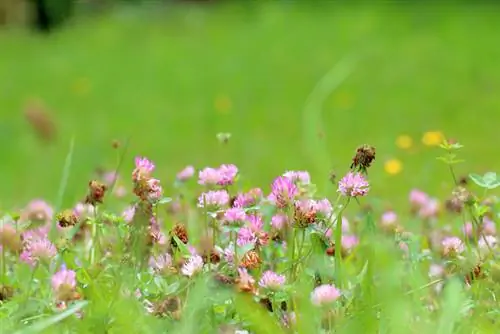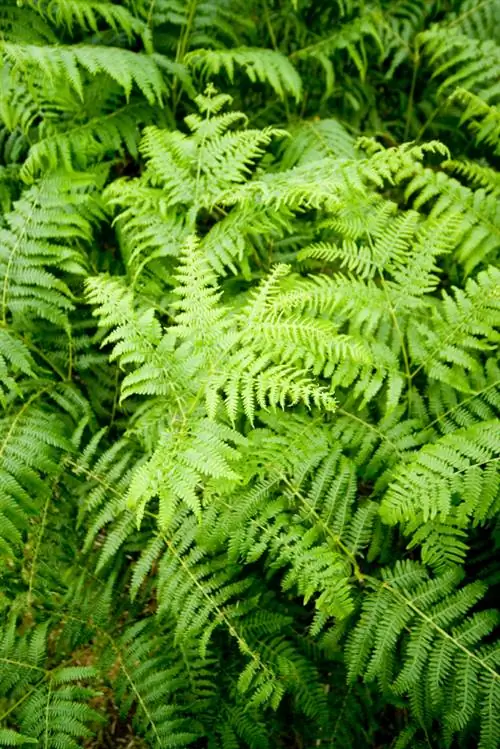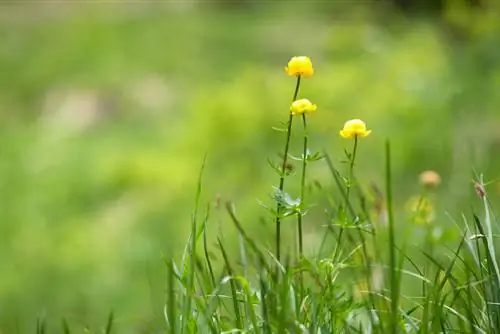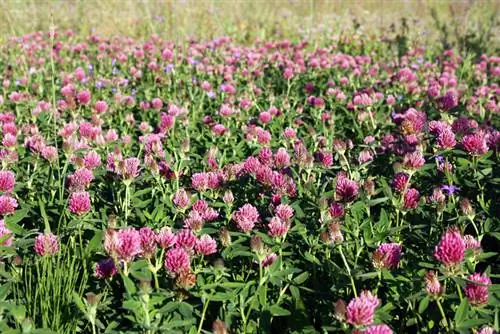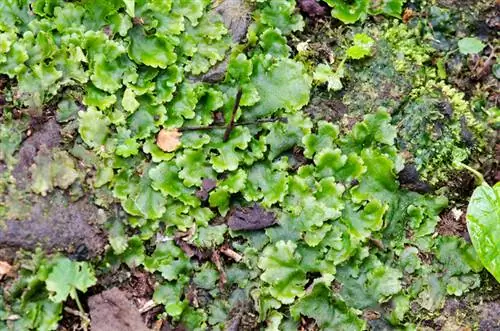- Author admin leonars@hobbygardeners.com.
- Public 2023-12-16 16:46.
- Last modified 2025-01-23 11:20.
Red clover is not just a pretty natural medicinal plant - as a weed it can become a real nuisance in the beds and lawn. Once the meadow clover has spread in the garden, manual work is required. How to combat red clover in the garden.
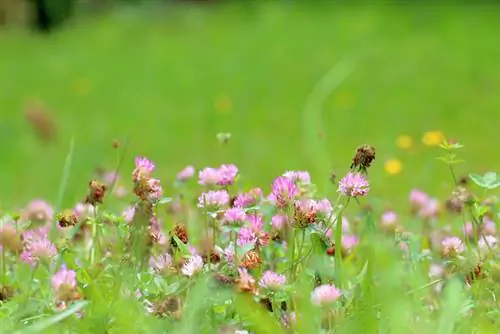
How can you successfully combat red clover in the garden?
To combat red clover in the garden, you can dig up the plants with a digging fork, prevent them in the lawn by scarifying and mowing, or if the infestation is severe, sift through the soil and reseed. Chemical weed killers are not recommended as they have little effect and harm bees and bumblebees.
How red clover reproduces
Red clover is a perennial plant. It reproduces via the long taproots and through self-sowing.
The roots are very robust. Even the smallest root remnants sprout again. If you want to sow red clover in the garden, be sure to create a deep root barrier. However, this measure only helps to a limited extent.
You should definitely cut or harvest the flowers before they have finished blooming. If red clover has spread in the lawn, frequent mowing will help. Then no seeds can form and spread everywhere in the garden.
Destroy red clover as a weed
If you want to remove red clover from the beds, dig up the plants with a digging fork. Insert the fork into the ground next to the plant as deep as possible and lift the soil.
Pull out the roots as completely as possible. If the infestation is very severe, it helps to sift through the soil and pick out even the smallest root residues.
Removing red clover from the lawn
- Scarifying the lawn in spring
- Fertilize the lawn
- Pull out weeds
- Remove lawn scar
- Sifting Earth
It is much more difficult to destroy red clover in the lawn. Scarify the lawn in spring so that the grass plants grow strong and crowd out the weeds.
Pick out individual plants with a weed cutter (€8.00 on Amazon). Here too, you have to get as many roots as possible.
If the infestation is very severe, the only option is often to re-seed the lawn. However, the soil must first be sifted several times to remove all root residues from the red clover.
Do not use weed killers
The use of weed killers is not recommended for red clover as it has little effect. The plant is also a popular pasture for bumblebees and bees. The beneficial insects would be too severely damaged by chemical agents.
Tip
You should not dispose of plant residues from the garden or kitchen in the compost. The red clover sprouts there again. It is better to remove the remains from the garden completely.

